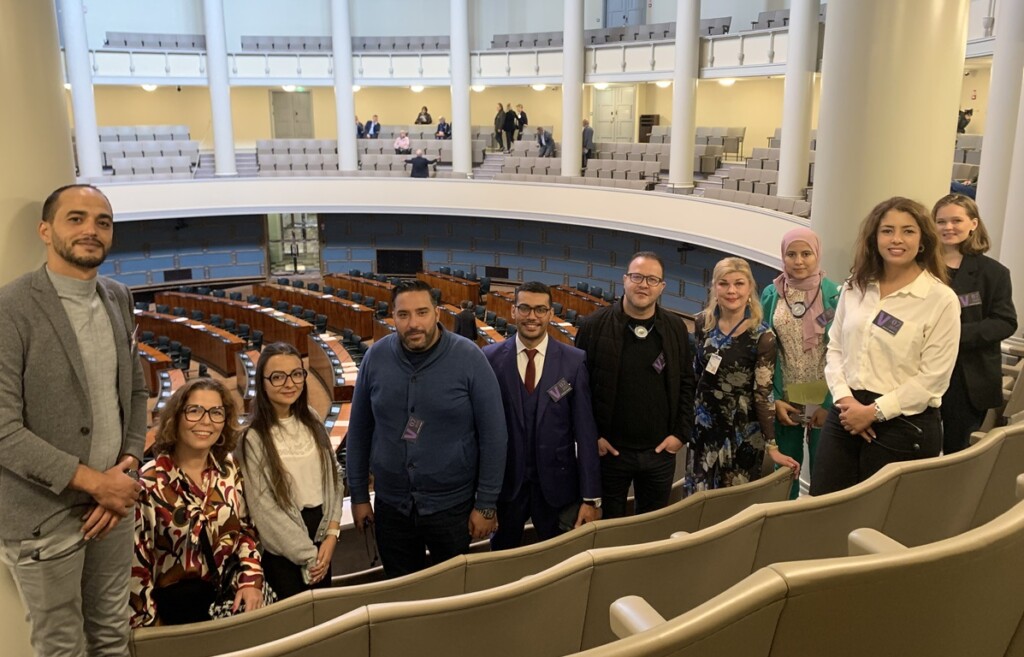Demo Finland’s activities are particularly focused around three themes:
Strengthening the inclusion of underrepresented groups
Women, young people, and various minorities, such as persons with disabilities, are often underrepresented in decision-making and face greater obstacles for political participation. However, equal participation of all citizens is at the heart of democracy. Since its establishment, Demo Finland has worked successfully to strengthen the political participation of women in particular, and inclusion of different groups remains one of the corner stones of our work. Inclusion is supported through training, multi-party networks, and advocacy work carried out with parties.
Supporting dialogue between parties
Effective co-operation between politicians despite differences of opinion is a prerequisite for sustainable peace, stability, and democratic development. Dialogue and trust between parties provide them the opportunity to negotiate and jointly promote matters that are important to society. Demo Finland supports an open and debating political culture between political parties. Dialogue between parties can be strengthened, for example, by supporting permanent forums for dialogue and by facilitating and implementing all programmes based on multi-party co-operation. In its programmes, Demo Finland always works together with all major parties in the country. Peer learning between Finnish parties and the parties in Demo Finland’s partner countries is another important part of Demo Finland’s work.
Enhancing the competence and programmatic activities of parties
The responsibility of political parties towards the citizens is an essential element of democracy. Citizens must be informed of the policy orientations of the parties and the type of policies they aim to promote in the future. New political parties may not have an extensive ideological or programmatic history, and parties in countries progressing towards democracy often consist of movements that have been created around individual politicians or specific ethnic groups. In order to tend to their role as decision-makers, politicians and parties also require skills and knowledge of democratic practices and the multi-party system. Strengthening the competence of both parties and politicians is an essential part of Demo Finland’s work. Supporting the strategic programming of parties furthers the citizens’ opportunities to make informed choices in democratic elections and improving the competence of politicians strengthens their ability to represent the citizens in a democratic multi-party system.
Demo Finland is currently working in Ethiopia, Finland, Kenya, Mozambique, Myanmar, Tunisia, Uganda (through the WYDE Civic Engagement project) and Zambia.

